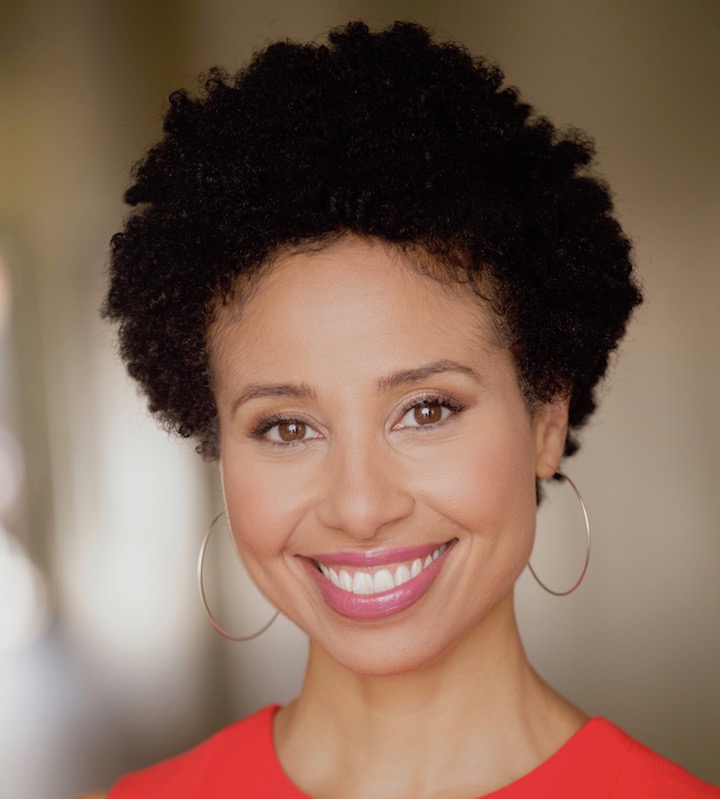Sex is a subject that is often found to be taboo in the black community. For women of color, sexual health and pleasure have slowly started to become a more openly discussed topic. However, these subject matters require more attention. Recently, I had the opportunity to chat with Dr. Erica Marchand, Ph.D. She is a Licensed Psychologist who specializes in Sex Therapy and Sexual Health in relationships for more than ten years. In a very candid and educational interview, we had the chance to discuss her motivation for her work in women’s sexual health, what women need to know and what she believes women should unlearn about sex.

The Chicago Defender: What sparked your interest in women’s health, particularly sexual health?
Dr. Marchand: Growing up, sex wasn’t a topic we discussed in my household. My parents were very conservative and religious so it wasn’t a subject that was talked about. This isn’t to say they weren’t great parents, they were, but this was something they just didn’t discuss and I think it was because it wasn’t something their parents did when they grew up. So, as I grew up I realized how clueless I was based on what other kids were talking about, and then moving on to college and having my own experiences I realized that women’s pleasure needs more air time! It’s important because if you don’t know much about sex, sexuality, sexual health, or consent you can become vulnerable to sexual harm. I think it really important for people to know, particularly women, that it’s okay to own your sexuality and to talk about your experiences. I didn’t want there to be a negative stigma around sex and sexual health, and that’s what ultimately shaped my career path.
The Chicago Defender: What is one area you believe black women neglect themselves when it comes to sex and sexual health?
Dr. Marchand: Pleasure. The ownership of pleasure for women is what’s often neglected. I’ve found that a lot of black women grew up the same way I can relate to meaning we didn’t talk about sex or we were told to wait until marriage, don’t get pregnant, or avoid STDs. I’ve noticed that the lack of those conversations often led to women being afraid to say what they want or don’t want sexually. There can also be a lot of shame, caution, or silence about what is pleasing sexually because a lot of times we’ve been taught that we shouldn’t express what we want from a sexual nature.
The Chicago Defender: What do you believe is the most important thing for women to know and understand about their sexual health and sexuality?
Dr. Marchand: Human beings are sexual beings. Sexuality is a valid part of being a whole person. Whatever your sexual concerns are, they are valid and should be heard. Express those needs, seek the help you need, go to your doctor to talk about what’s going on with your body, and talk to your partner about what your needs are.
The Chicago Defender: Why do you think it’s so taboo for women to own their sexuality?
Dr. Marchand: I think historically, women have learned to view their sexuality as a means to serve someone else, or it’s not as important as a man’s sexuality. I believe religion and religious views play a part in it as well. For some reason, a lot of religions don’t like sex or have differing views about it and that plays a key part in many people’s experiences. I’m not bashing religion or people’s beliefs, however, sometimes having a strong religious background can lead to having a negative background in the way people view sex.
The Chicago Defender: Are there any particular products you recommend for women to use?
Dr. Marchand: One of my favorite products is a vaginal moisturizer that helps with dryness and restoration of vaginal cells after intercourse called Fabu-Vag developed by a female pharmacist. It’s all-natural, has a pH that is specifically designed for what a natural pH balance should be. It contains fennel which helps replenish natural moisture and renew vaginal tissue. Another product I really like is called Jarrow Fem-Dophilus, a vaginal probiotic that helps maintain the proper feminine bacteria. If you don’t like over-the-counter items, I recommend having a heart-healthy diet and drinking plenty of water. A healthy body, in general, will help maintain healthy lady parts.
The Chicago Defender: What is the best advice you have for women as it relates to their sexual health?
Dr. Marchand: The best advice I have for women about their sexual health is to learn about your body. Take courses, read books and educate yourself. As far as your personal care after intercourse, take a moment to relieve yourself. This is something that goes unmentioned but many times a lot of women are prone to yeast infections or other vaginal infections after intercourse and it’s best to work with your OBGYN to figure out a regimen that will help you avoid these infections. The other part of this is emotional aftercare. Try to savor the moment. Whether it’s cuddling with your partner or reviewing the experience in your mind (what you liked or didn’t like about it) but definitely take time to engage in and acknowledge your emotions about it.
Sex and sexual health for women often go overlooked in the black community, and it’s time for this narrative to change. For more education on women’s sexual health visit Dr. Marchand on her website hertherapysecrets.com
Liz Lampkin is a Lifestyle, Love, and Relationships writer. Follow her on social media @Liz_Lampkin



